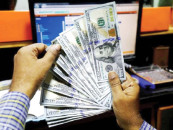Direct link between taxes and FDI
Pakistan's highest 29% corporate tax, plus 10% super tax, deters investors

The gold standard for economics is the idyllic state of perfect competition. This idyllic state occurs when there are enough buyers, sellers, workers and companies, and where economies of scale can be easily attained. As such, the marginal cost of a product will be the price of that product.
Profit maximisation also means that the marginal rate of substitution between labour and leisure is the wage, and the marginal rate of substitution between the future and the present is the real return on capital.
Competition brings out the best in us, which in turn produces the best results for everyone. When nothing is guaranteed, the economy is instantly incentivised to do better. Risk aversion and profit maximisation are amazing motivators. Adam Smith described this market as being guided by "the invisible hand".
Competition is just as important amongst governments as it is in the private sector. Government competition is about the only force that keeps the economy on a growth trajectory and prosperity for all.
To achieve good outcomes, it makes very little sense for governments to impose punitive taxes, regulations, or any other component of fiscal policies.
Pakistan today stands at the very bottom in state competitiveness vis-a-vis the rest of the world. It continues to struggle in attracting foreign direct investment (FDI). FDI in Pakistan has remained stagnant in the last decade with an average of little more than $1 billion per year. We have witnessed countless memoranda of understanding (MoUs) signed but very few have come to fruition. Even worse, we have recently seen more multinational companies exiting than entering. Even the China-Pakistan Economic Corridor (CPEC) has significantly slowed down. Why?
There is a direct link between corporate taxes and FDI. Pakistan has the highest corporate tax at 29%, plus a 10% super tax, a 2% Workers Welfare Fund, and a 5% Workers Participation Fund. Additionally, there is a tax on dividends at 15% (which is actually a case of double taxation) with add-ons: advance withholding, sales, excise and levies.
On top of all the tax burden, there are regulatory hurdles, overlapping approvals, unclear compliance requirements, persistent bottlenecks, legal disputes, etc. Yikes!
Since 2000, every single country in the Organisation for Economic Co-operation and Development (OECD) has lowered its corporate tax rate. The OECD's average corporate tax rate stands today at 23% (France having the highest at 34% and Hungary the lowest at 9%).
To any investor, under these circumstances, why would they even consider to invest their dollars, euros, yen, or yuan in Pakistan? Go figure!
Corporations have options, they can and do operate across national borders, and taxes – specifically corporate taxes in different countries – affect corporate behaviour. Corporate tax creates powerful incentives and by far is a significant factor in determining where a company chooses to locate its operations.
Our myopic politicians and bureaucrats believe, irrationally, that our economy is insulated from the global economy and fail to understand the importance of competition amongst countries.
Policymakers have limited tools to attract and retain businesses, and corporate tax rate is the most important of these tools. Pakistan's corporate tax code reform is long overdue; lagging behind in reforms will only exacerbate the current dilemma.
Lowering the corporate tax rate is a supply-side approach to advertise and promote oneself in a very competitive global economy. It will lead, in a very short term, to a higher investment-to-GDP growth, faster employment growth, and most importantly, higher government tax revenues and much wanted foreign exchange reserves.
Unfortunately, this truth is very hard to explain to our politicians and bureaucrats because their livelihood depends on their not understanding the truth. Government is a system in which employees are not incentive based; they don't even know who their customers are, and their pay is not merit-based.
"The invisible hand" – if I may go back to Adam Smith – is really the most powerful force in economics as well as in good government. Competition is incredibly important. This is especially true for governments as well as the private sector.
The writer is a philanthropist and an economist based in Belgium























COMMENTS
Comments are moderated and generally will be posted if they are on-topic and not abusive.
For more information, please see our Comments FAQ